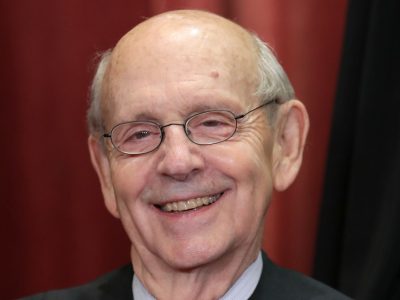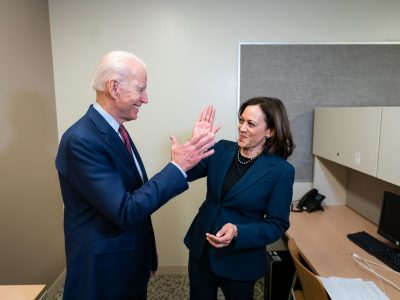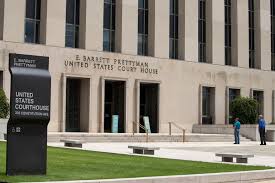Justice Breyer’s Nuanced Voice for the Environment
Not much for rhetoric, but a reliable vote for environmental protection.
Given Justice Breyer's announced retirement, it seems like a good time to assess his contribution to environmental law. When Bill Clinton nominated him for the Supreme Court, there was a great deal of uneasiness among environmentalists about Justice Breyer. As an academic, he had sounded a cautious note about government regulation, calling for more deliberation and greater consideration of costs. On the Supreme Court, however, he’s been a bit of a puzzle. He has gene...
CONTINUE READINGThe Controversial Congressional Review Act
Biden has a congressional shortcut to cancel Trump’s regulatory rollbacks, but it comes with risks.
The Trump administration dedicated itself to deregulation with unprecedented fervor. It rolled back scores of regulations across government agencies, including more than 80 environmental rules. The Biden administration can reverse some of those actions quickly – for instance, as president, Joe Biden can undo Donald Trump’s executive orders with a stroke of the pen. He plans to restore U.S. involvement in the Paris climate agreement that way on his first day in off...
CONTINUE READINGRenewable Energy in the Carolinas
While we were focusing on DC, there has been a lot of action at the state level.
Trump has dominated the national conversation for the past four years. While our eyes were on his efforts to rollback climate action, a lot has been happening at the state level. This post is the one of an episodic series of posts on state renewable energy policy. Today, the focus will be on North and South Carolina, where there have been some major developments despite conservative Republican legislatures in both states. Before looking at the two states’ polici...
CONTINUE READINGThe problem with “follow the science”
Science is necessary, but not sufficient, for good policymaking
In the wake of the poor performance of the Trump Administration’s efforts to address the coronavirus pandemic in the United States, there has been advice that the Biden Administration should “follow the science” in developing its coronavirus policies and strategies. While an emphasis on a clean break from the prior Administration’s rejection of the nature and seriousness of the coronavirus is understandable and welcome, the rhetoric of follow the science has it...
CONTINUE READINGOn the Frustrations of Climate Politics
It’s not just the shortcomings of Joe Manchin. Climate legislation is a tough challenge at all levels.
Yesterday, Joe Manchin announced that he couldn’t support the Build Back Better reconciliation bill. Unless Biden can somehow coax him back to the negotiating table, that dooms what would have been a major breakthrough in climate policy. Manchin bears responsibility for this deerply regrettable decision. But climate legislation is hard, even in more favorable political settings such as California. Manchin’s financial ties to the fossil fuel industry may help exp...
CONTINUE READINGThe CRA is Back in Play
What you need to know about the Congressional Review Act and Trump's regulatory legacy
This post is co-authored by Beth Kent and Cara Horowitz Last week's Georgia Senate victories have given Democrats (bare) control of the Senate—and, with it, the potential to use the Congressional Review Act (CRA) to erase some of the Trump Administration’s regulatory rollbacks. Here are four key things to know about this unique legislative oversight tool. (1) It’s fast. The CRA allows Congress to work quickly to overturn rules federal agencies have recently p...
CONTINUE READINGDawn of a New Era
Trump’s relentless war on the environment has finally come to an end.
A new chapter began when Joe Biden took the oath of office. That moment also marked the end of Donald Trump’s presidency, which featured efforts to roll back over a hundred environmental regulations. Biden campaigned on an ambitious plan to curb climate change, which he must now try to implement with a razor-thin control of Congress. At the same time, he will have to try to clean up the regulatory carnage left by Trump and move forward with new, aggressive protections ...
CONTINUE READINGDC Circuit Gets Help from Grid Experts in Vacating ACE Power Plant Rule
The importance of understanding how things work
I've seen lots of good analysis already (including this post from Dan) of the DC Circuit's decision today to invalidate the Trump Administration's ACE Rule, which governs climate emissions from coal-fired power plants and does essentially nothing to reduce those emissions. It turns out that doing essentially nothing is not enough. There's a lot to like about the court's decision, and I'm especially gratified that it reflects an understanding of the workings of the e...
CONTINUE READINGA Big Win for Climate Regulation
The DC Circuit overturns Trump's effort to hamstring regulation of carbon from power plants.
The D.C. Circuit issued an opinion today knocking out Trump's Affordable Clean Energy rule. The Trump rule was a rollback of Obama's keystone climate initiative, the Clean Power Plan. The majority opinion plus dissent take up 185 pages, and I won't try to describe it all here. Briefly, here's what the appeals court ruled and why it matters. The underlying issue was what kind of restrictions EPA could place on carbon emissions from existing power plants. Both r...
CONTINUE READINGTrump’s Pro-Environmental Acts — A VERY Short List
Despite its general hatred of environmental protection, the Trump Administration did manage a few positive steps.
This being the last day of Trump's presidency, it's appropriate to look back on his environmental record. Basically, Trump was to environmental law as General Sherman was to Georgia. In the time between his "American carnage" Inaugural Address to his unleashing of carnage on Capitol Hill, he and his minions devoted themselves to environmental destruction. Even so, there were a few occasions where the Administration backed actions to protect the environment — s...
CONTINUE READING










